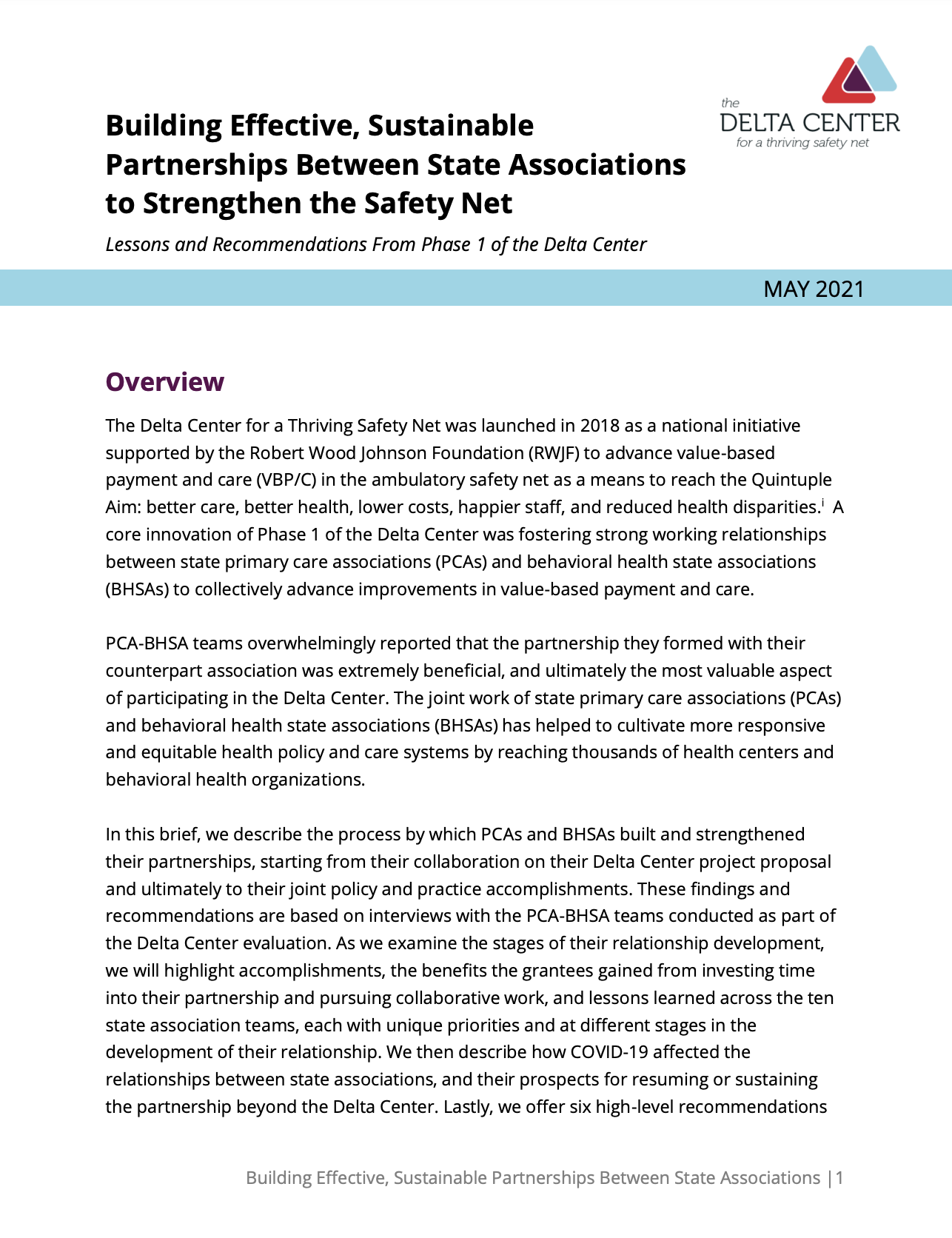
Building Effective, Sustainable Partnerships Between State Associations to Strengthen the Safety Net
This report analyzes the process by which primary care associations (PCAs) and behavioral health state associations (BHSAs) built and strengthened their partnerships, starting from collaboration on Delta Center project proposals and ultimately to joint policy and practice accomplishments.
The findings and recommendations from this report are based on interviews with the PCA-BHSA teams conducted as part of the Delta Center evaluation.
Six high-level recommendations include:
- Devote upfront time to build a common understanding of each other’s organizational history, culture, and priorities.
- Create a shared vision of the ambulatory safety net.
- Seize major policy opportunities when they occur, as they occur infrequently.
- Bring together members around common training and technical assistance and practice improvement to foster more coordinated care.
- Build support across different organizational levels of state associations, including leadership buy-in, so that relationships can be sustained.
- Focus on relationship resilience, not just joint projects.
The Delta Center for a Thriving Safety Net was launched in 2018 as a national initiative supported by the Robert Wood Johnson Foundation to advance value-based payment and care in the ambulatory safety net as a means to reach the Quintuple Aim: better care, better health, lower costs, happier staff, and reduced health disparities.

 Back to Resources
Back to Resources